
Patients with heart failure may have an increased incidence of cancer, which may be a result of similar risk factors including obesity and diabetes.

Patients with heart failure may have an increased incidence of cancer, which may be a result of similar risk factors including obesity and diabetes.

A cancer survivor writes about the oncologist who helped him conquer the fears and anxieties of cancer treatments.

The FDA’s recent approval of Rybrevant marks the first targeted therapy for a certain group of patients with non-small cell lung cancer, according to an expert at NYU Langone Health’s Perlmutter Cancer Center.
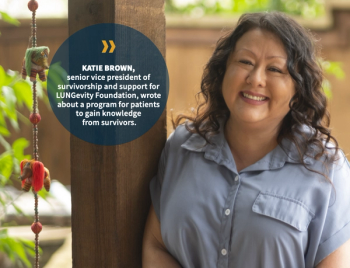
Katie Brown, senior vice president of survivorship and support for LUNGevity Foundation, wrote about a program for patients to gain knowledge from survivors.
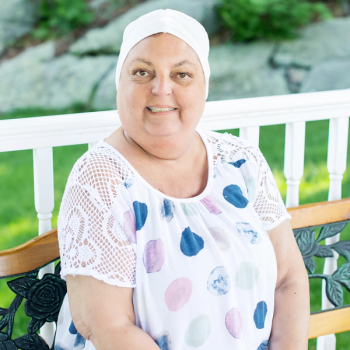
"Jutta Becker does not wear a cape and she cannot fly, but she does soar," writes a colleague nominating Becker for the Lung Cancer Heroes® award.
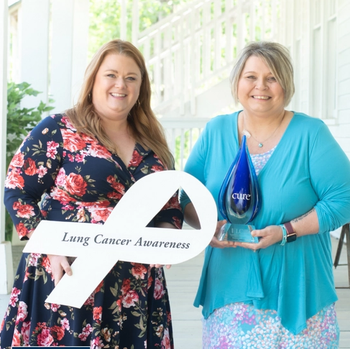
Deborah Pickworth, who is living with stage 4 lung cancer, was nominated for the Lung Cancer Heroes® award for her impact in supporting and advocating for others with the disease.

A survivor with a nearly 10-year journey with lung cancer and ongoing treatment writes a poem about the emotional ups and downs of living with cancer.
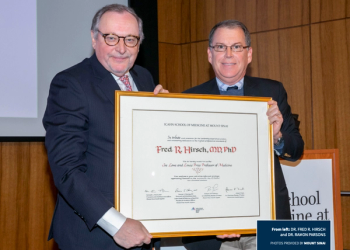
"Whereas scientific and organizational developments have been landmarks for Dr. Hirsch, his care for patients has always been in the center and, as a cancer survivor himself, he will always have patient care at the forefront."

"Although Carolyn loved her role as a navigator, she realized she could help patients with lung cancer with a screening program to help with earlier detection."
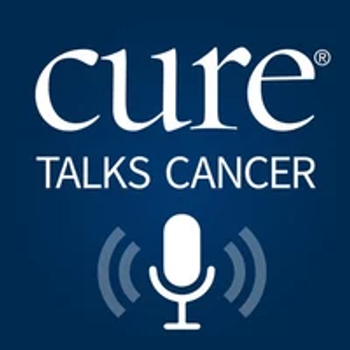
In this episode of the “CURE® Talks Cancer” podcast, Dr. Thomas Marron of the Tisch Cancer Institute and Icahn School of Medicine at Mount Sinai in New York discusses the exciting future of cancer vaccines.
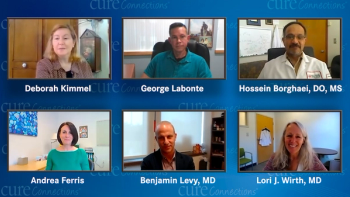
Lori J. Wirth, MD, describes what information she looks for from results of molecular testing that help inform treatment for her patients with thyroid cancer.

Andrea Ferris, of the LUNGevity Foundation, explains why shared decision-making is important when recommending molecular testing to patients with lung or thyroid cancer and highlights resources provided through her organization that support patients and health care professionals.

Patients with metastatic KRAS G12C mutated non-small cell lung cancer now have another treatment option if they previously failed at least one line of therapy.

Novel combo regimen reduces number of toxic treatments in patients with NSCLC.

Common questions asked by patients with lung or thyroid cancer who have been referred for biomarker testing and advice for setting expectations from test results.

Drs Benjamin Levy and Lori J. Wirth comment on the current role of liquid biopsies in lung and thyroid cancer.

Recommendations for selecting appropriate patients for comprehensive genomic profiling and navigating through the testing process.

Drs Benjamin Levy and Lori J. Wirth describe how they currently utilize comprehensive genomic profiling to manage patients with non–small cell lung cancer or thyroid cancer.

Combination of Opdivo and Yervoy had improved efficacy and durable response after four years in patients with advanced non-small cell lung cancer.

Mobocertinib showed clinically meaningful benefits in patients with EGFR exon 20 insertion–positive metastatic non-small cell lung cancer with a manageable safety profile.

In a final analysis of a study examining the effectiveness of Alecensa compared to Xalkori in patients with non-small cell lung cancer, the Alecensa-treated group did not achieve better survival outcomes.

The long-term follow-up data, according to one of the study’s authors from the Sarah Cannon Cancer Institute, demonstrate “a new benchmark for the standard of care” in the treatment of patients with unresectable stage 3 non-small cell lung cancer.

Treatment with aumolertinib was associated with prolonged survival in patients with advanced non-small cell lung cancer.

Previously treated patients with non-small cell lung cancer tended to have better responses with Retevmo than they did with prior treatments.

Findings demonstrated that Gavreto could clinically benefit those with RET fusion-positive non-small cell lung cancer, including those who are treatment naïve.